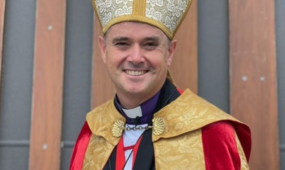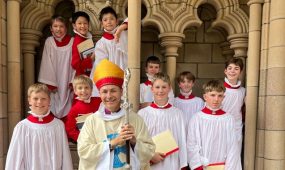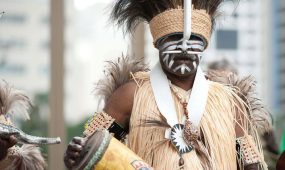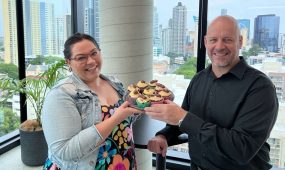Q&A with The Rev'd Wilfred Kekea, Mission Secretary of the Diocese of Central Melanesia
Spotlight Q&A
Meet The Rev’d Wilfred Kekea from the Diocese of Central Melanesia, who recently visited the Parish of Gayndah on a cross-cultural tour, and find out about his current role, visit highlights and theology
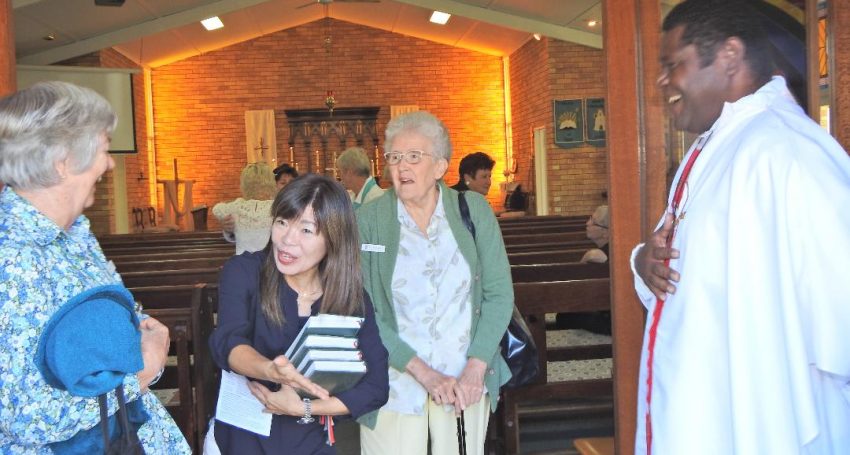
The Rev’d Wilfred Kekea is currently participating in a six-week cultural immersion program in the Parish of Gayndah, offering sacramental ministry within the Parish and engaging with seasonal workers. He was ordained in 2011 and is currently the Mission Secretary of the Diocese of Central Melanesia in the Anglican Province of Melanesia, based in Honiara, Solomon Islands. He has a Bachelor of Theology from Bishop Patteson Theological College (BPTC), Kohimarama, with special interests in the work and training of clergy and youth and children’s ministry. He and his wife Hara have three children, a 16-year-old daughter named Anika and two sons, Tiva aged 13 and Xavinago aged eight. Prior to his ordination, The Rev’d Wilfred worked as a marine engineer and he still enjoys occasional sea travel.
How long have you been involved in the Anglican Church?
Since birth. I had an infant baptism, was involved in Sunday School ministry and received the sacrament of Confirmation, and then because of the nature of my work as a seafarer I participated in church life whenever possible until my resignation from sea life in December 2006 to go to theological college.
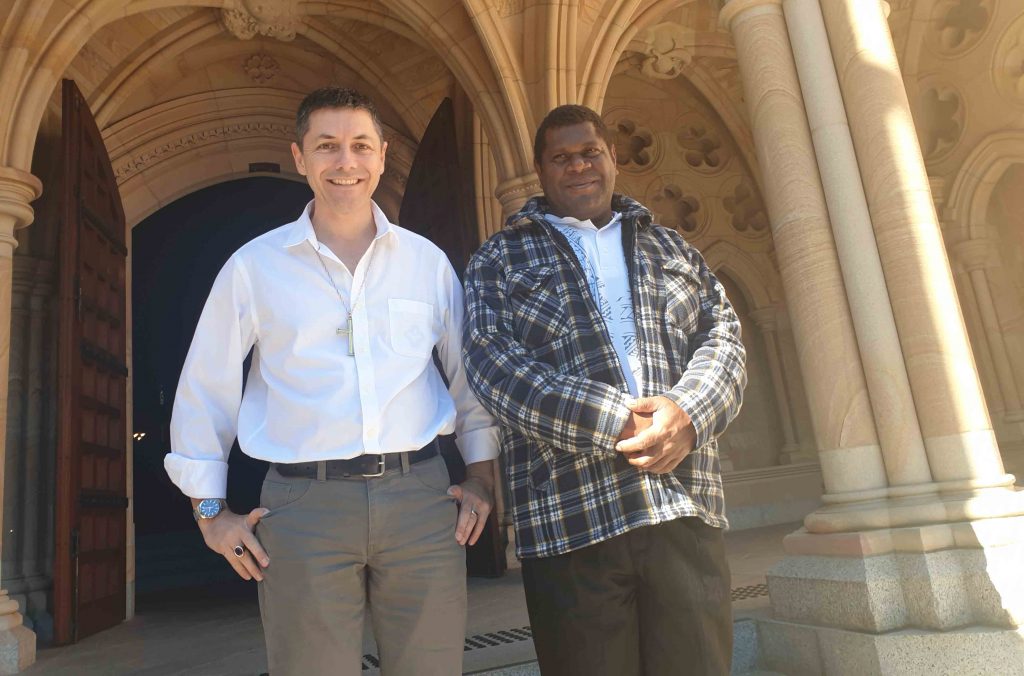
Fr Wilfred Kekea and Bishop Jeremy Greaves outside St John’s Cathedral on 11 June 2019
What is the name of your current role and what does your role involve?
I am currently working as a Mission Secretary for the Diocese of Central Melanesia, one of the nine Dioceses in the Anglican Church of Melanesia (ACoM). In a nutshell, as there are a number of Ministry Groups (including Mothers’ Union, Men’s Fellowship, Sunday School, Companions and Associates of different religious communities, and Youth and Renewal groups) this is more of a coordinator role of mission work across the Diocese.
Advertisement
My role helps Anglicans in Honiara City to know what we are doing together as a Diocese or as an individual parish. This office also links the Diocese to other Dioceses or Anglican Provinces through the Provincial Mission Office.
What have been the highlights of your role so far?
The successful relaunch and current roll out of the Decade of Evangelism and Renewal in the Diocese of Central Melanesia and ongoing Diocesan Mission Activities in a hospital and a correctional institution. A Youth Convention is scheduled for the end of June 2019.
You are currently visiting the Parish of Gayndah from Melanesia. Can you tell us about the purpose of your visit and what ministry activities you will carry out while visiting Australia?
This is basically a cross-cultural visit, in other words, this visit is to see firsthand and experience the Anglican Church in Gayndah, Australia.
Participating in the Holy Eucharist and other services are foremost on the list of ‘to dos’, though Bible Studies with the Mothers’ Union and visits to the aged care home are scheduled for Wednesdays and Fridays.
I also enjoyed attending annual meetings of the Queensland Anglican Men’s Society in late May, whilst home visits to various homes of the parishioners are done on invitation.
Visits to the different families’ day-to-day activities (in the cattle and citrus industries) have also been highlights because Melanesian theology is centred more on the omnipresent God in daily activities.
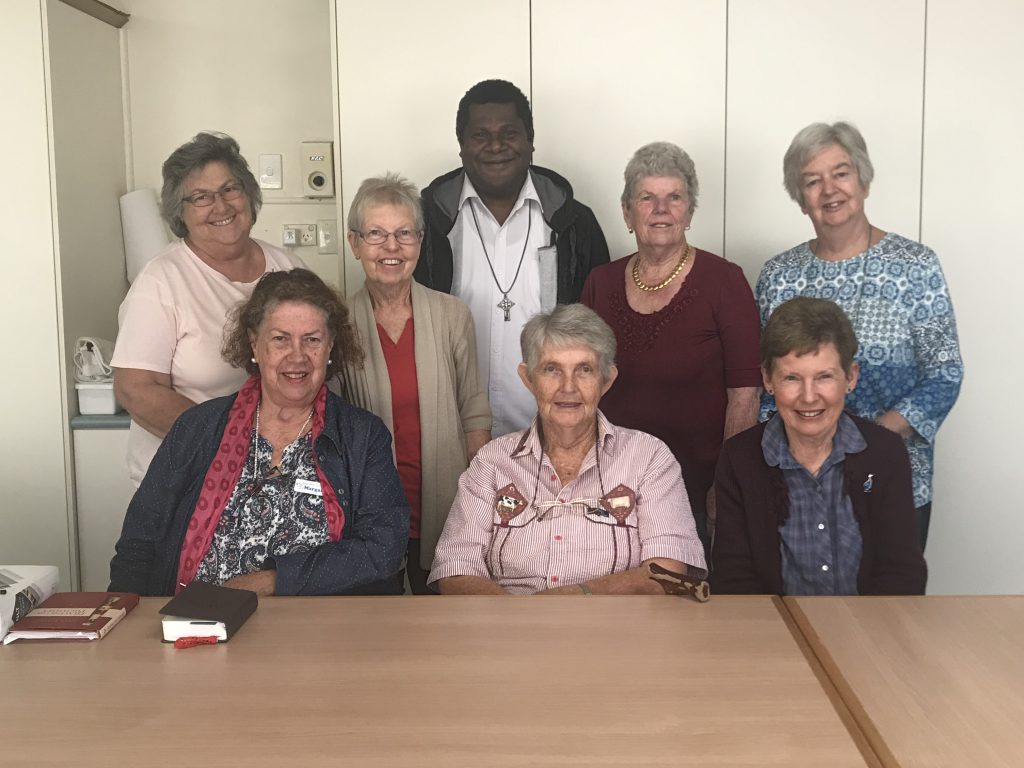
Fr Wilfred Kekea with Mothers’ Union Bible study members in the Parish of Gayndah
What are some of the differences between life in the Solomon Islands and life in Gayndah?
People in the rural Solomons plant, raise, fish or hunt for their daily meals and basic medical facilities can be difficult to reach, thus most still use herbs and faith for healing.
Distances in Australia from one rural town to the next are massive, thus the need for a car, and the roads here are in excellent condition.
Advertisement
The variety of products on supermarket shelves is mind blowing here and one has more privacy in Gayndah than in the Solomons.
What are the differences between the church in the Solomon Islands and in Gayndah?
The services are more or less the same, except that there are more people of all age groupings going to church in the Solomon Islands and church services are held daily. The Church still plays an important role in the daily activities of people in Melanesia; there are senior government officials and even Members of Parliament carrying out active duties in church.
Can you tell us a little about your faith journey?
There are highs and lows, but the training for ordained ministry was truly a time of testing as the family tried to fit in a life of prayer, obedience and to an extent, poverty. God’s blessings are still uncountable, though.
What is your favourite scripture and why?
Isaiah 6:8 – New International Version
“Then I heard the voice of the Lord saying, ‘Whom shall I send? And who will go for us?’ And I said, ‘Here am I. Send me!’”
This can be personally taken as a response to the call into ordained ministry.
What person of faith inspires you the most and why?
Two grandmothers who would pray every morning and evening without fail – may they rest peacefully in the Lord’s bosom.
What have you learned during your visit to Gayndah?
A lot of things; about the flora and fauna and how the aged are looked after by the aged care home are interesting. Garbage collection is very efficient and most produce to and from Gayndah is transported by very big trucks. These are just a few examples.
I have also noted a few things about people working as fruit pickers, and I have been fortunate to visit a citrus packing shed.
On the whole, I have learnt that God’s face is shining on Gayndah and the people; at least all those I have met expressed God’s love through their actions.
What do you think the people in Gayndah have learnt from you during your visit?
The few people that I have met and have had conversations with would have learnt a few things about the Solomon Islands, including what the church life is like, about the typical village life and basically what blessings Australians take for granted. For example, one bloke who was complaining about the roads in North Burnett should see the roads in the Solomon Islands.
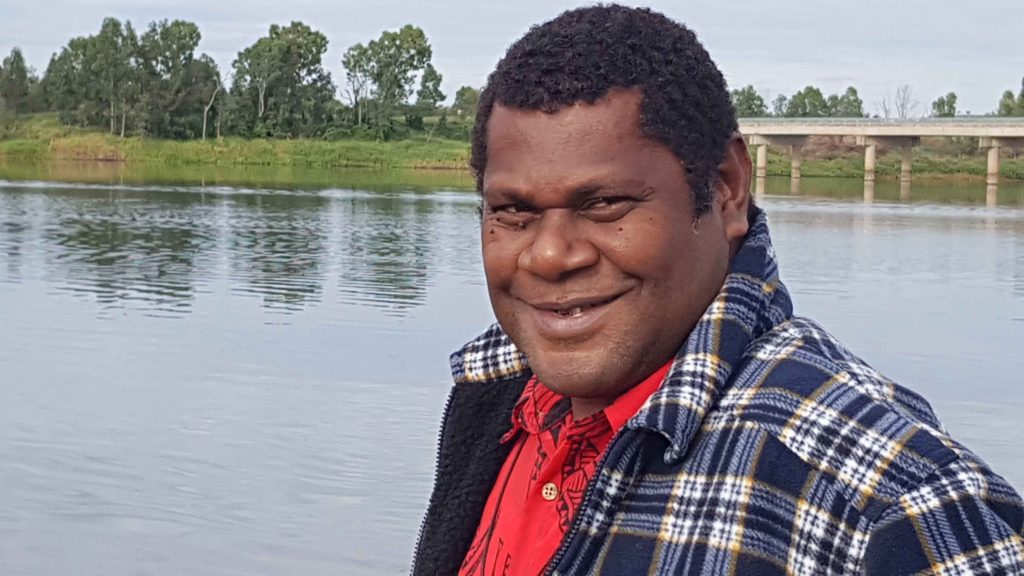
Fr Wilfred Kekea at Mingo Crossing in early May on the way to Mt Perry, where he attended a St Anne’s Church fundraiser
What do you do in your free time to recharge and relax?
Walking, television, internet and sleep.
What is your favourite movie and why?
I have not watched a movie for some time, but The Passion of the Christ directed by Mel Gibson is a realistic reminder of the suffering that Jesus Christ went through.
What is your favourite book and why?
John Grisham and Wilbur Smith are my favourite fiction authors, as I enjoy the action, suspense and lively stories.
My favourite theological book is Stephen B. Bevans’ Models of Contextual Theology, which is part of the Faith and Culture Series, as it explains theological leanings to some extent
Where have you travelled to?
During this trip, I have visited some parts of North Burnett, Bundaberg, Maryborough and Hervey Bay.
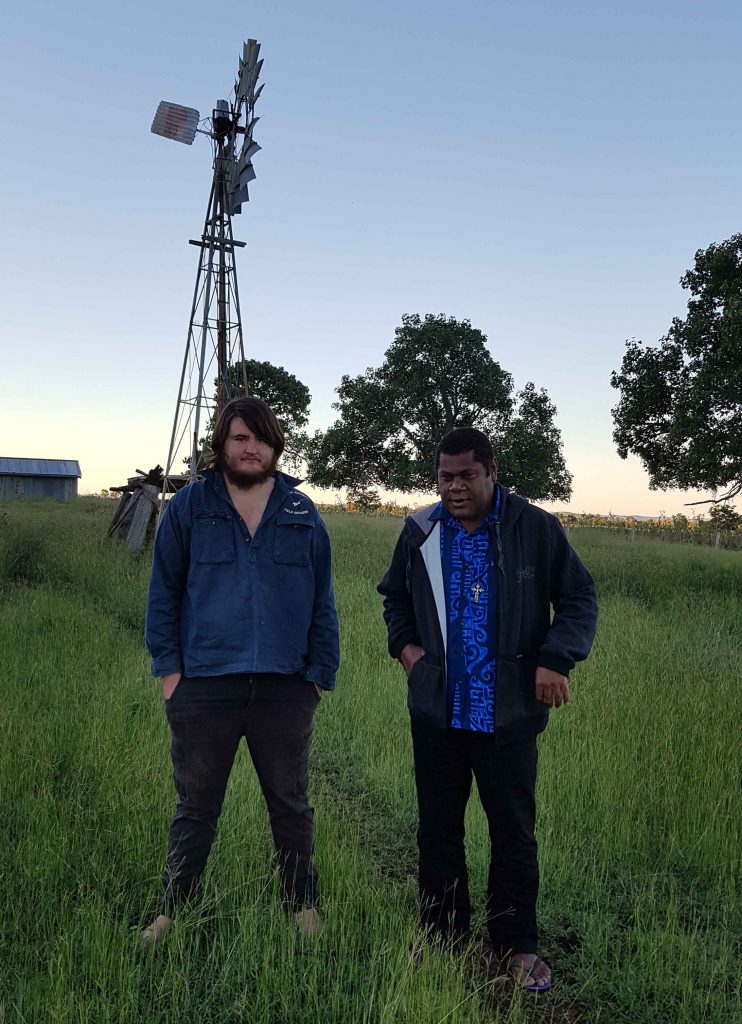
Fr Wilfred Kekea with Garth Slack at the home of Angela and John Slack. Angela Slack is one of the Church Wardens at the Parish of Gayndah and she assisted Fr Wilfred during his visit.

